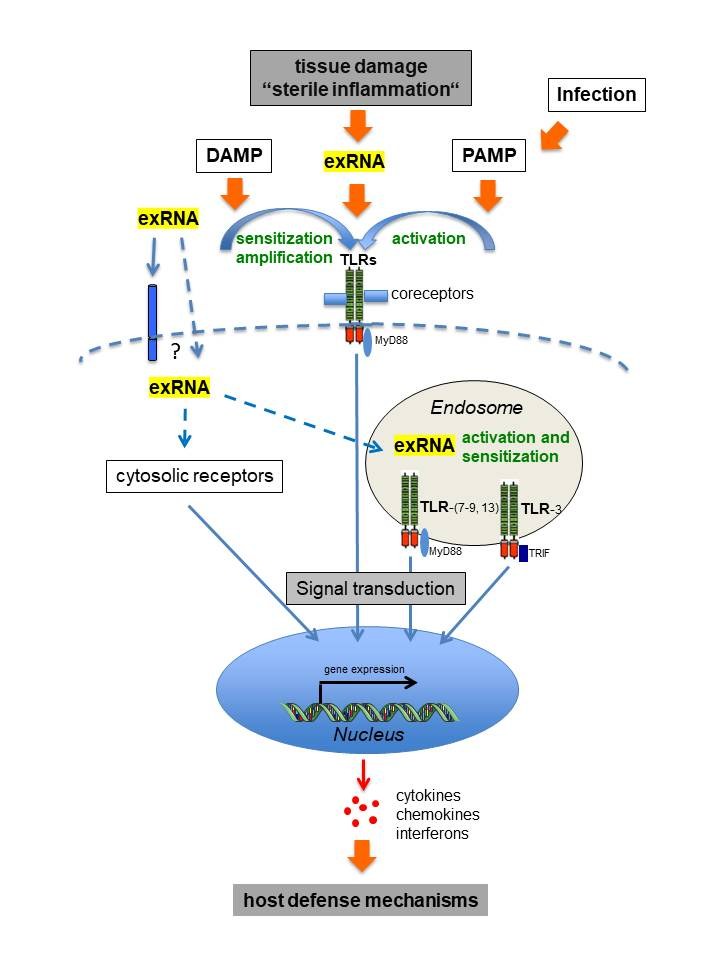AG Fischer

copyright: private
Research Areas:
The scientific interests and active research of the group are concerned with the contribution of innate immunity processes in host-pathogen interactions, inflammation, wound healing and thrombosis, particularly dedicated to cardiovascular and pulmonary diseases. In this context, the as yet unrecognized role of self-extracellular nucleic acids as alarm signals in disease is a major part of our work, documented by many recent publications, particularly achieved by multiple collaborations with different laboratories worldwide.
A major part of our current work concentrates on the role of “danger-associated molecular patterns” (DAMPs) such as endogenous extracellular nucleic acids as alarm signals in situations of microbe-host interactions or in diseases of the vascular and cardiopulmonary system. To this end, our group has made seminal discoveries to show that self-extracellular RNA serves as a potent cofactor in thrombosis, tissue edema, cardiac ischemia-reperfusion injury, stroke, or tumor progression and that RNase1 administration is successful as novel therapeutic intervention in such pathological situations. Furthermore, our group together with our cooperation partner in Munich (Elisabeth Deindl) could identify extracellular RNA as a critical mediator of mechanotransduction during the multistep inflammatory processes responsible for arteriogenesis, the process of collateral artery growth as an adaptation to major arterial occlusion.
Extracellular RNA also enhances “Pathogen-associated molecular patterns” (PAMPs)- and DAMPs- induced inflammatory activities of immune and vascular cells in a synergistic manner involving the activation of Toll like receptors.
Main focus of our current work relies on examining the mechanisms of these processes with the aim to develop inhibitors to decrease inflammatory activities in cardiovascular diseases but also in viral and bacterial infections.
Publications from AG Fischer you find here: PubMed and here: PubMed.
